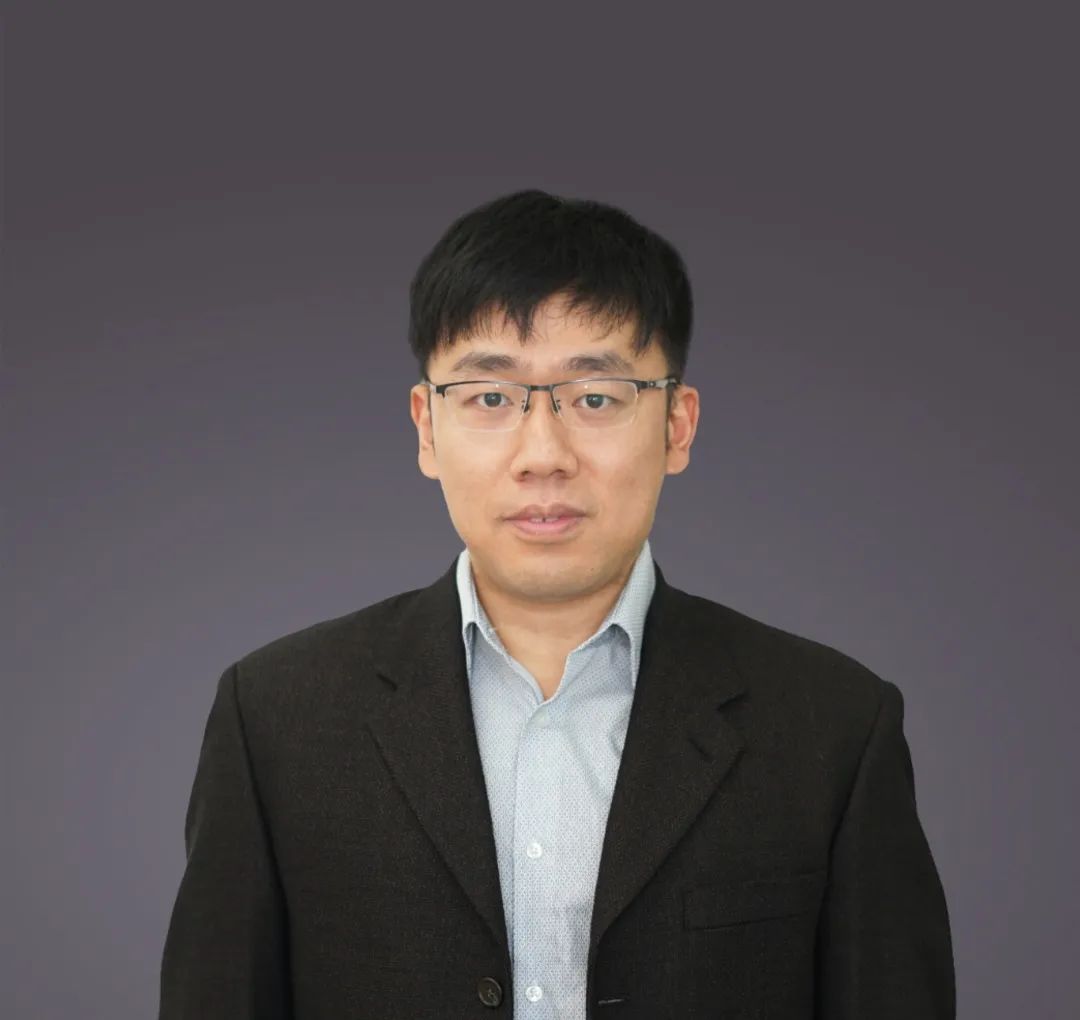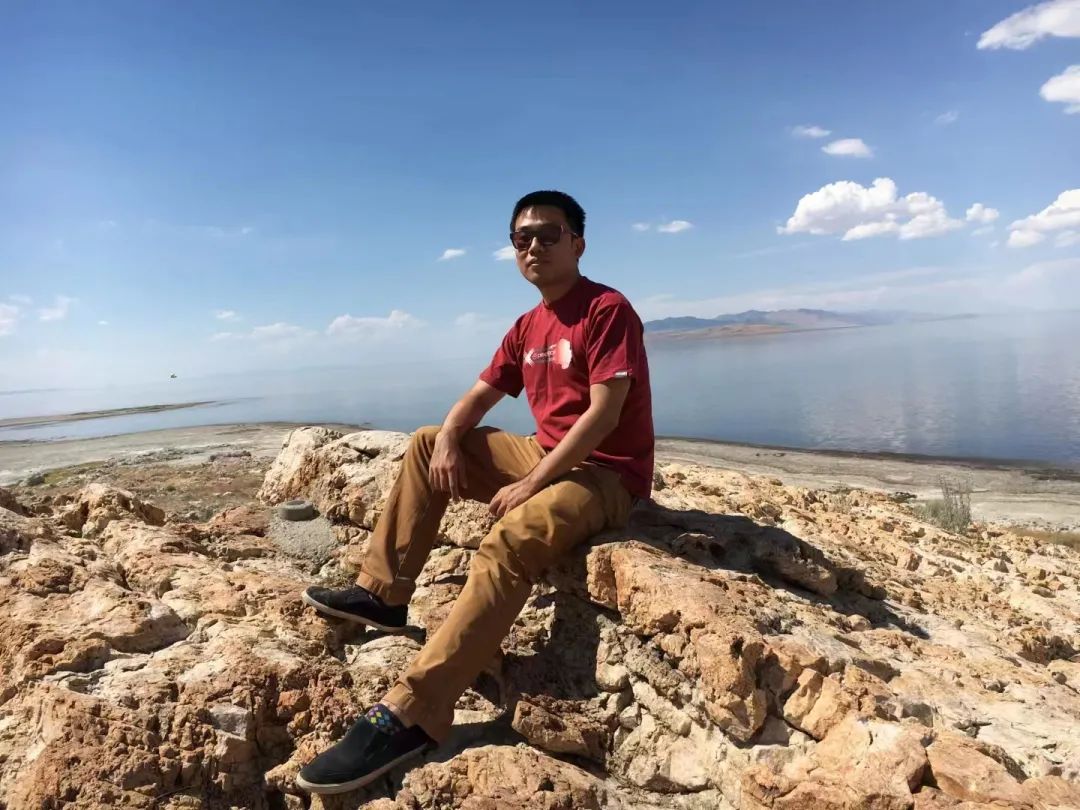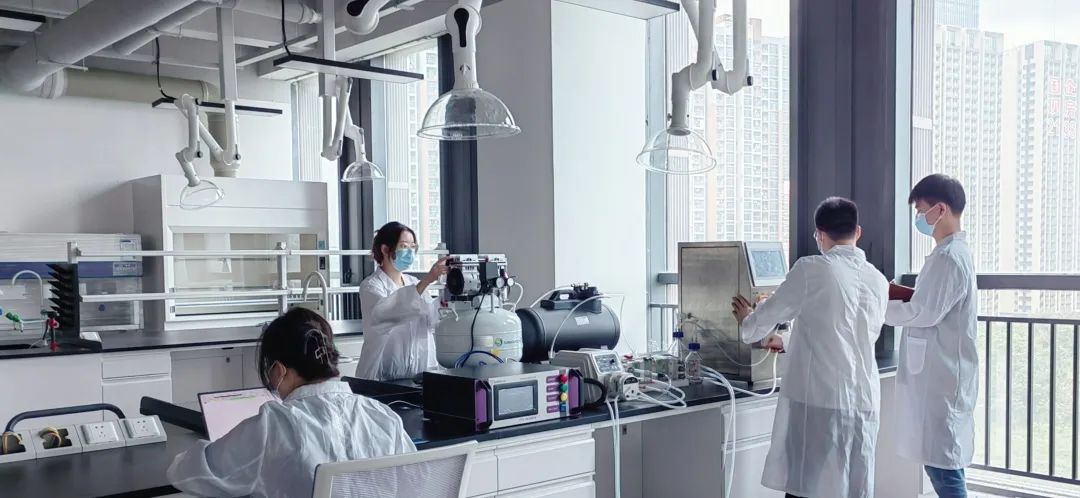
In September 2021, Dr. Xia Lin from Institute of Synthetic Biology, Shenzhen Institutes of Advanced Technology, Chinese Academy of Sciences, founded Shenzhen Zhongkeling Carbon Biotechnology Co., Ltd. From the very beginning of its establishment, the company received strong support from CAS Angel Investment Fund jointly sponsored by the CAS Fund of Funds and Mr. Gong Hongjia, a famous angel investor. Within just two months, the company successfully completed a seed funding round, raising tens of millions of yuan in investment.
In the interview, when asked about Dr. Xia's journey from working at the Shenzhen Institutes of Advanced Technology to transitioning from a research scientist to an entrepreneur, Dr. Xia smiled and said, "I returned to China from the United States and joined the Institutes of Advanced Technology in 2017. I found that the laboratory facilities, research atmosphere, and culture of innovation and entrepreneurship here are no less than those in the United States. Over the past four years, I have actively explored both in research and in the industrial sector, and I have established the development direction of the fusion application of synthetic biology and electrochemistry in the field of carbon neutrality.”
Studying in Israel offers the fortunate opportunity for Xia Lin to delve into the field of carbon neutrality.
In 2012, Xia Lin obtained her Ph.D. in Physical Chemistry from the National Center for Nanoscience and Technology, Chinese Academy of Sciences, under the supervision of Professor Wei Zhixiang. After graduating, he worked at the Qingdao Institute of Bioenergy and Bioprocess Technology, the Chinese Academy of Sciences for a year. However, his journey took an interesting turn when he attended an academic presentation and had the opportunity to meet Professor Lital Alfonta, a renowned Israeli bioelectrochemistry scientist. Professor Alfonta proactively asked if he would be interested in conducting research in Israel. With her assistance, Dr. Xia obtained the Israeli PBC Fellowship, which enabled him to come to Ben-Gurion University of the Negev in Israel for her postdoctoral research in 2013.
Upon his arrival at Ben-Gurion University of the Negev in Israel, Dr. Xia was warmly welcomed by his laboratory colleagues. She shared, "Israeli Jews are very friendly to Chinese. Some helped me get acquainted with the experiments, some took me to the supermarket, and others invited me to their homes on weekends. I quickly adapted to the Israeli research team and learned about their cultural heritage. They are all diligent and inquisitive individuals who love to engage in discussions. The academic research atmosphere is both free and pure.” Dr. Xia also recalled, "I have several close friends here, many of whom have served in the Israeli military for several years and have rich life experiences. They are agile-minded and can manage family businesses during their free time. Moreover, the atmosphere for entrepreneurship within the university is very strong. Influenced by them, I also hope to one day balance research and entrepreneurship.”

Dr. Xia Lin
During his research tenure in Israel, Xia Lin participated in a carbon-neutral project supported by the Planning and Budgeting Committee of Israel, focusing on biomass electrochemical catalysis for power generation. One of his most interesting experiences is working with engineers in the desert to generate electricity by utilizing organic wastewater. "Normally, when we do bioelectrogenesis experiments in the laboratory, it involves small-scale setups. However, during the pilot testing in the desert, the scale was increased by far more than a thousand times. Organic wastewater came from two sources: large chemical factories and wastewater generated from growing algae. We had to ensure the efficiency of microbial power generation while treating organic wastewater using a biological approach. This required applying principles of physical chemistry to design and calculate the processes and collaborating with engineers’ engineering modeling for proper scaling.” Xia Lin recognized that studying carbon-neutral technology is a mission that involves interdisciplinary cooperation among global scientists and engineers from various fields. Using green and sustainable energy sources is an effective way to reduce carbon emissions at their source.
Going to the United States to participate in cutting-edge research on efficient and reversible catalysis of ethanol-CO2.
At the end of 2015, Professor Lital Alfonta recommended Dr. Xia to conduct postdoctoral research at the University of Utah in the United States. As a core member of the research team, he participated in a carbon-neutral related project funded by the Defense Advanced Research Projects Agency (Darpa) of the U.S. Department of Defense, focusing on reversible catalysis of ethanol-CO2.

Xia Lin collected samples in the Salt Lake while working in the United States.
Xia Lin explained that CO2 is a potential ideal energy storage medium. It can be converted into chemical energy through the electrochemical/biological reduction of CO2 using renewable electrical energy. This chemical energy is stored in the organic compounds produced during the reduction of CO2. In scenarios where energy output is needed, through a reversible electrochemical/biological process, which operates on the principles of a fuel cell, electrons generated during the oxidation of organic compounds are harvested, thereby producing electricity. When the efficiency and engineering level of both of these energy conversion processes reach industrial levels, they can be effectively integrated into the carbon-neutral energy portfolio, becoming a reliable solution for sustainable development.
"I conducted research on bioelectrogenesis in Israel based on single-enzyme catalysis, but it had the drawback of the limited electron harvest during the reaction process, resulting in low efficiency in the utilization of biomass fuels. When I arrived in the United States, building upon my previous research and inspired by the 'substrate channeling' effect seen in highly efficient multienzyme systems widely found in nature, we achieved precise nano-level control of the distances between multiple enzyme catalytic components fixed at the electrode interface through sequence design of DNA nanomaterials in a cascade reaction. For the first time in enzymatic electrochemistry, we replicated the substrate channeling effect observed in nature, and realized highly efficient cascading catalysis of ethanol,” explained Xia Lin. In February 2017, the research findings were published in the prestigious journal "ACS Energy Letters" of the American Chemical Society.”
Bravely Pioneering the Path of Synthetic Bioelectrochemical Carbon Neutrality
In May 2017, after returning to China, Xia Lin joined the Institute of Synthetic Biology at the Shenzhen Institutes of Advanced Technology. His primary focus has been on the interdisciplinary research of synthetic biology, electrochemistry, and materials science, particularly in the applications of carbon neutrality and catalysis for biosensing.
Beginning in 2019, Xia Lin began to cooperate with enterprises to develop a proof-of-concept prototype based on electrochemistry/biocatalysis to produce organic acids. In 2020, engineers of CNPC contacted Xia Lin to discuss how to use electrochemical hybrid to drive biotransformation to realize high value-added utilization of carbon dioxide in view of the demand for CO2 treatment in large petrochemical enterprises. In response to the industry's needs, Xia Lin started considering the development of a platform technology that could be adapted for various scenarios through the cascade catalysis. For instance, in the context of petrochemical enterprises, CO2 could be converted into energy compounds such as polyols and organic acids through a combination of electrochemical catalysis and microbial catalysis. It could also be transformed into fine chemicals, such as Ectoin and biodegradable plastics.
As we all know, greenhouse gas emissions, primarily carbon dioxide (CO2), have led to global warming, ocean acidification, and other environmental issues. In 2020, President Xi Jinping officially announced China's commitment to strive for carbon peak by 2030 and carbon neutrality by 2060. This significant strategic decision is based on China's responsibility to promote the construction of a community with a shared future for humanity and the inherent requirements of sustainable development. Green and low-carbon initiatives have become a prominent topic, and they are expected to be crucial factors influencing China's economic, industrial, and social development in the foreseeable future. As one of the key priorities of China's "14th Five-Year Plan," various government departments and local authorities have already begun formulating policies and setting specific goals and plans for future carbon peak and carbon neutrality.
Under such background, Xia Lin registered and established Shenzhen Zhongkeling Carbon Biotechnology Co., Ltd. in Guangming New District in September 2021, which was the first new energy-driven synthetic bioelectrochemical carbon neutralization technology company in China. It is the first to realize the low energy consumption and high value-added resource utilization of industrial CO2 emission by electrochemical-driven synthetic biocatalysis, empower enterprises to reduce carbon and increase carbon sinks with carbon negative technology, promote the transformation of production methods of traditional high-carbon emission enterprises, and support the national policy of carbon peaking and carbon neutrality and sustainable development strategy.
"In our product pipeline, we have Ecotoin, biodegradable plastics, polyols, alternative proteins, etc. We plan to achieve large-scale production of Ecotoin in the second half of this year." She also mentioned, "We have applied for nearly ten invention patents and have nearly 30 employees.”

Zhongkeling Carbon Laboratory Scene
For his first entrepreneurial venture, Xia Lin candidly stated, "We mainly face two challenges during entrepreneurship. First, it's quite difficult to recruit talents. It takes time to build trust with potential hires, and the entire communication process can be lengthy. Second, business expansion is challenging because the carbon neutrality track is relatively new. We need to simultaneously educate the market while also executing pilot projects.”
Despite all those challenges, Xia Lin is still full of confidence in the future of Zhongkeling Carbon. In Gansu, where a new energy power plant generates electricity through photovoltaics, there is an issue of surplus renewable energy. Utilizing this surplus energy to drive the resource utilization of CO2 effectively harnesses the advantages of using CO2 as an ideal energy storage medium. Zhongkeling Carbon is actively involved in this demonstration project and aims to develop it into a green and low-carbon sample project.
Xia Lin is optimistic and believes that using new energy sources to drive the reduction of CO2, combined with new biofinery techniques based on synthetic biology principles, can convert CO2 into daily chemicals, fine chemicals, and energy-related chemicals. This approach can replace high-pollution and unsustainable petrochemical routes. It also holds significant importance in extending Shenzhen's existing new energy industrial chain and enriching the city's new energy industry ecosystem.
Profile
Xia Lin, Ph.D., Senior Engineer and Doctoral Supervisor of Shenzhen Institutes of Advanced Technology, Chinese Academy of Sciences, and Chairman of Shenzhen Zhongkeling Carbon Biotechnology Co., Ltd. Xia graduated with a Bachelor's degree from the School of Life Sciences at Shandong University. In 2012, she obtained her Ph.D. in Physical Chemistry from the National Center for Nanoscience and Technology, CAS. Afterward, she received scholarships, including the PBC-fellowship, and conducted postdoctoral research at Ben-Gurion University of the Negev in Israel and the University of Utah in the United States. She was a core participant in carbon-neutral projects related to biomass power generation and CO2 catalytic storage funded by the Planning and Budgeting Committee of Israel and the Defense Advanced Research Projects Agency (DARPA) of the United States. He joined Shenzhen Institutes of Advanced Technology, Chinese Academy of Sciences in 2017. Xia has extensive experience in interdisciplinary research involving synthetic biology, electrochemistry, and materials science, with applications in carbon neutrality and catalysis for biosensing. She has been involved in research projects funded by the National Natural Science Foundation of China and the Ministry of Science and Technology, accumulating over tens of millions in research funding. He has also been recognized as a high-level overseas talent in Shenzhen.